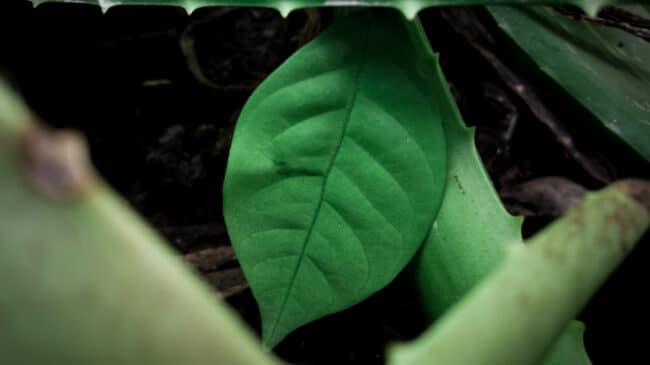A new study showing the potential mental health benefits and safe application of the psychedelic substance ibogaine could have important policy implications. Attempts to bolster political and regulatory support for ibogaine-assisted therapy have faltered over the last two years due to safety concerns surrounding ibogaine’s use and the absence of high-quality clinical research. The study, published in the academic journal Nature, directly addresses these concerns.
In the study, Stanford University’s Nolan Williams and his team found that ibogaine-assisted therapy significantly reduced symptoms of traumatic brain injury (TBI) and post-traumatic stress disorder (PTSD) among 30 veterans treated at a private clinic in Mexico. The clinic in the study was run in collaboration with Veterans Exploring Treatment Solutions (VETS), an advocacy and resource organization that connects veterans with treatments outside of the United States. After a single administration, patients showed immediate improvements in cognitive function.
While the potential of ibogaine for treating TBI is promising, this study also lends support to another application of ibogaine therapy—opioid use disorder. Early research has shown that ibogaine may be the best available treatment to aid individuals trying to overcome an opioid addiction, but there has been some opposition to this application.
The primary opposition is that ibogaine can disrupt the heart’s regular pacing (known as QT-prolongation), which has led to high-profile fatalities in some of the early clinics that offered these treatments. However, practitioners have developed safety protocols to mitigate this danger when ibogaine is administered in a clinical setting that primarily consists of treating the subject with magnesium supplements.
For instance, Dr. Deborah Mash’s ibogaine clinic in St. Kitts, West Indies, conducted 257 treatments from 1996 to 2004 without any related deaths. Her clinic in Cancun, Mexico, reported conducting 1,200 treatments without any associated or related deaths. Most serious adverse events associated with ibogaine have resulted from nonclinical use. The Nature study provides renewed evidence that ibogaine treatments can be safe with the proper protocols in place.
It shows that ibogaine can be used safely and effectively to treat serious neurological conditions when adhering to proper protocols. “[N]o other drug has ever been able to alleviate the functional and neuropsychiatric symptoms of traumatic brain injury,” according to lead researcher Nolan Williams. “The results are dramatic.”
A Stanford University summary of the study elaborates further: “One month after treatment participants experienced average reductions of 88% in PTSD symptoms, 87% in depression symptoms and 81% in anxiety symptoms relative to how they were before ibogaine treatment.”
Ibogaine’s potential for treating opioid dependence reaches far beyond what currently available therapies can offer. Existing treatments use milder opioids, such as methadone, to support a person’s physical addiction over a prolonged period. These treatments satiate drug cravings, thereby reducing withdrawal symptoms, but do not permanently reduce reliance on any drug.
By contrast, ibogaine can almost immediately alleviate both physical dependency and mental cravings after a single administration. In one clinical study, 76% of participants reported the resolution of physical opioid withdrawal symptoms within 72 hours.
The controversy around ibogaine as an experimental treatment received national attention when policymakers in Kentucky proposed allocating $42 million out of an $842 million settlement with prescription opioid manufacturers toward FDA-supervised clinical trials to demonstrate that ibogaine is effective at treating opioid addiction. Use of the settlement funds was restricted for programs to abate the impact of opioid addiction, and so ibogaine trials met this criterion.
However, critics voiced concerns about the potential health risks posed by ibogaine. Some experts expressed skepticism that the Food and Drug Administration would approve a drug with potential dangers. The proposal became especially imperiled after Russell Coleman was elected Kentucky’s attorney general in November 2023. Coleman quickly shook up the Opioid Abatement Advisory Commission, designed to direct the state’s use of the settlement funds, by dismissing the commission’s chair, Bryan Hubbard, who was an advocate of the ibogaine proposal.
At the commission’s Jan. 9 meeting, Chris Evans, former chief operating officer for the Drug Enforcement Administration, who replaced Hubbard as executive director of the Opioid Abatement Advisory Commission, chose not to address ibogaine.
“There will be a time, and we will engage in those…[ibogaine] conversations, but just today is not the day for that,” Evans said to citizens attending the meeting to urge the state to move forward with the ibogaine study, according to Kentucky Health News.
With Kentucky’s ibogaine study in doubt, other states may need to take the lead. When studies with psilocybin revealed efficacy rates in the treatment of depression similar to those of ibogaine in the treatment of opioid addiction, the FDA gave it a rare “breakthrough” status, which grants an accelerated path to drug approval at a lower cost.
Historically, it has been difficult to conduct clinical research on psychedelic substances in the United States. Although the FDA does allow Schedule I substances to be tested as investigational new drugs, the Drug Enforcement Administration imposes a series of harsh controls on medical researchers that are difficult and costly to comply with. These disincentives discourage private investment into the development of promising new drugs even if the market incentives would otherwise substantiate investment.
New evidence presented by the Nature study could help remove current barriers to research and pave the way for the development of ibogaine as a promising treatment for opioid addiction.

